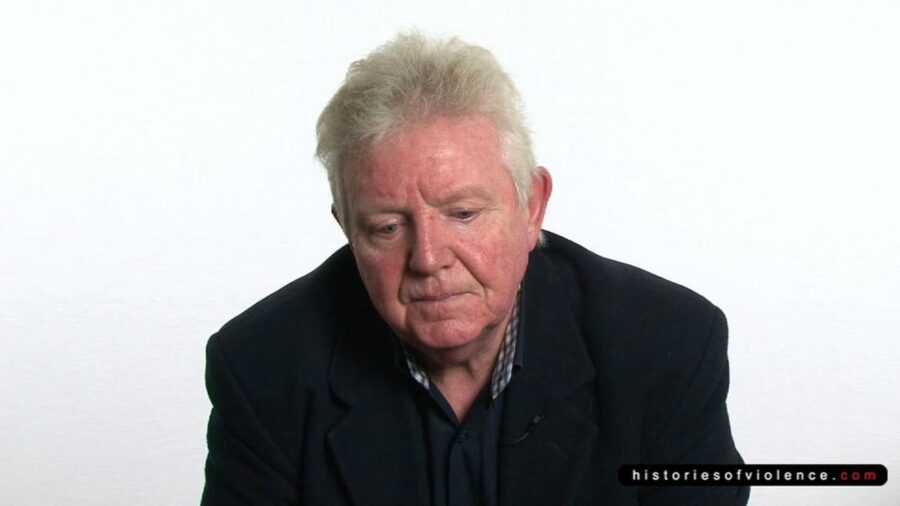Michael Dillon: Ten years of the War on Terror I think has to be located also in the context of more than ten years of liberal welfare since 1989, and the dissolution of the Soviet Union, and the end of the Cold War structures.
This was not an aberration. The last twenty years I think have been an opportunity seized by liberal regimes to write the world according to the moral sentiments and commercial dynamics of a liberal political economy. And to give expression in fact to military and martial drivers that were always there in liberalism from the very beginning in the 18th century. First enunciated in the 18th century as a theory of moral sentiments, and as an astonishing innovative commercial and financial enterprise. The argument was—made by Smith, David Hume, many others, and repeated since—the argument was that this theory of moral sentiment and this commercial innovative capacity, not least in relation to the invention of credit, would help to establish peaceable relations nationally and internationally.
The paradox all of this early enunciation of liberalism was not that it brought an end to war but that it multiplied the reasons for making war. Those are the moral sentiments of liberalism. And not that it limited war financially, but that it extended also the means for making war, since the move from money and species and bullion to credit vastly increased the finance available for the waging of war. So there you’ve got it. A central paradox at the core of liberalism, proclaiming itself as a means of restricting war, paradoxically multiplying means, multiplying reasons, for making war.
Fast forward to the late 20th century. Again we find liberal regimes waging war. And we find liberal regimes giving expression to the theory of moral sentiments and the commercial drivers and ambitions of liberalism, but in specific ways contemporary to the last twenty years.
One of the ways in which there was a difference, but it was a difference I think which intensified the paradox of the 18th century—multiplying reasons for making war, extending the mechanisms for waging war—was a shift from the political anthropology that had underwritten the theory of moral sentiments of early liberalism—Smith, Hume, and the rest. A kind of theory of moral sentiments which is based upon the notion of the possessive individual liberal subject. A shift from, at least a supplementing of that, but this curious biophilosophy of the late 20th century which gave rise to a kind of political biology.
Expressing a kind of zeitgeist of the age, this political biology, this biophilosophy, was taken up by military strategic thinkers in the United States in the aftermath of the dissolution of the Cold War as they rethought global, international, and competitive relations and threats to security and ways of waging war in the future in the absence of the old Cold War structures. Life would become informationalized. Complex adaptation, transformation, and change was given a biological twist as well as a commercial twist. And much of this found its expression not just in complexity thinking but in what was called network-centric thinking, giving rise in military strategic terms in the United States to a transformation of the United States military strategic apparatus and industrial apparatus through what was called a “revolution in military affairs,” so called, to the adoption of a network-centric warfare strategy. Which was not just a strategic theory but dug deep down into the structures of the American military. Indeed, under Rumsfeld and Cebrowski, the architects of this military strategic thinking, an office of forced transformation, signaling the commitment to life and to military life as a process of continuous adaptation and change was instituted in the Pentagon.
Here then I think you get a multiplication again of reasons for war. But uninhibited now by any competitive moral arguments to liberalism. And that multiplication of reasons for war after 1989…there was no competitive moral argument against it, only the liberal arguments for it in terms of rogue states, intervention into civil wars, and so on. That multiplication of the means in the late 20th century, and multiplication of reasons in the late 20th century, was of course also complemented through the credit revolution of the late 20th century, a vast increase in the financial means for waging war as well.
Credit, commerce, moral sentiments, allied again in the last twenty years, but allied and given expression through the War on Terror. Allied and given expression through the adoption of network-centric thinking, revolutionary in military affairs, and so on.
Now, the paradox of 18th century liberalism was that the moral sentiments in commerce gave rise to a multiplication of reasons for war, and an extension of the mechanisms for waging war. An additional complex arose in the last twenty years. Here, a vast apparatus of international and global intervention, War on Terror, intervening in failed states, and so on. This vast apparatus for increasing security of course seemed in addition, or paradoxically, to generate vast insecurity. Indeed insecurity became internalized. And the paradox for liberalism was that this apparatus for creating security, creating vast insecurity, also created mechanisms for threatening liberal freedom.
